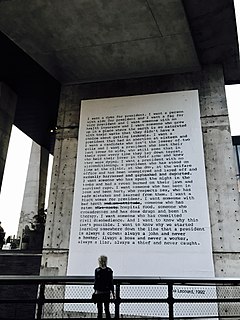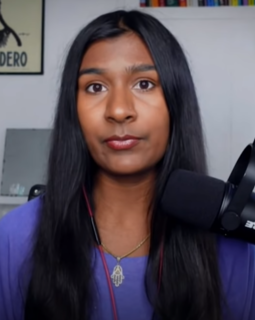A Quote by Zoe Leonard
After the First World War, it was, like, let's form the League of Nations, we have to learn to work together. It's the only way we're going to survive. And now it's like we're undoing these very fragile institutions that were built after the First and Second World Wars that were about nations working on a kind of global diplomacy for our mutual benefit. And we're undoing them at such rapid-fire pace.
Quote Topics
About
After
Benefit
Built
Diplomacy
Fire
First
First World
First World War
Form
Fragile
Global
Going
Institutions
Kind
League
League Of Nations
Learn
Like
Mutual
Mutual Benefit
Nations
Now
Only
Our
Pace
Rapid
Second
Second World War
Survive
Them
To Survive
Together
Undoing
Very
War
Wars
Way
Were
Work
Work Together
Working
World
World War
Related Quotes
I think our support for the EEC has been very half-hearted. You really cannot join any group of nations and spend all your time criticising it. The EEC is free Europe getting together. Had we had some vision like that after the first world war , we might never had the second ... my son does not have to go and fight as his father had to fight. Surely that is the most valuable thing of all, the reason for keeping Europe together.
Whenever I'm asked about independent cinema, I think of what Fidel Castro said during the Cold War about the league of non-aligned nations. He said that really, there were only two non-aligned nations: the U.S. and the USSR. The rest of us have to be aligned somewhere. I say similarly, in a way, Paramount, Sony, and Warner Bros. are the only true independents, because they're the only ones who can do whatever they want and have distribution for their films built in.
Our friendship was like our writing in some ways. It was the only thing that was interesting about our otherwise dull lives. We were better off when we were together. Together we were a small society of ambition and high ideals. We were tender and patient and kind. We were not like the world at all.
The foes now are universal - poverty, famine, religious radicalization, desertification, drugs, proliferation of nuclear weapons, ecological devastation. They threaten all nations, just as science and information are the potential friends of all nations. Classical diplomacy and strategy were aimed at identifying enemies and confronting them. Now they have to identify dangers, global or local, and tackle them before they become disasters.
So many of the new nations which were established as democracies after the second world war, during the decolonizing process, have now changed their system to state-socialism. Small elites run them, and they aren't sharing societies. They aren't even socialist. The power of the state has been merged with business property and you have the greatest concentration of power that's possible.
This is total war. We are fighting a variety of enemies. There are lots of them out there. All this talk about first we are going to do Afghanistan, then we will do Iraq... this is entirely the wrong way to go about it. If we just let our vision of the world go forth, and we embrace it entirely and we dont try to piece together clever diplomacy, but just wage a total war... our children will sing great songs about us years from now.
It's lonely to say goodbye. Very lonely. Please. Cry with me. Maybe there's nothing we can do about this. But at least, for now...cry with me. Like your entire body...is screaming at the sky. Like it's raging against the world. I lost something. And I don't have a single guarantee. The fear of living in this world again after that...I have only a shred of hope to sustain me. So I want you at least...to cry. Cry. Cry with me. Like the day you were first born into this world.
We desperately need some new thinking today about systems of global governance. We're stuck with the same obsolete, ignore-the-earth institutions that were brough into being after the 2nd World War, and they're now failing us ever more catastropically. Wild Law shows just how radical we now need to be in creating new institutions that are genuinely 'fit for purpose' in the 21st Century.
By 1938, Eleanor Roosevelt was so angry at FDR's policies, she writes a book called This Troubled World. And it is actually a point-by-point rebuttal of her husband's foreign policy. We need collective security. We need a World Court. We need something like the League of Nations. We need to work together to fight fascism. We need embargoes against aggressor nations, and we need to name aggressor nations. All of which is a direct contradiction of FDR's policies.








































